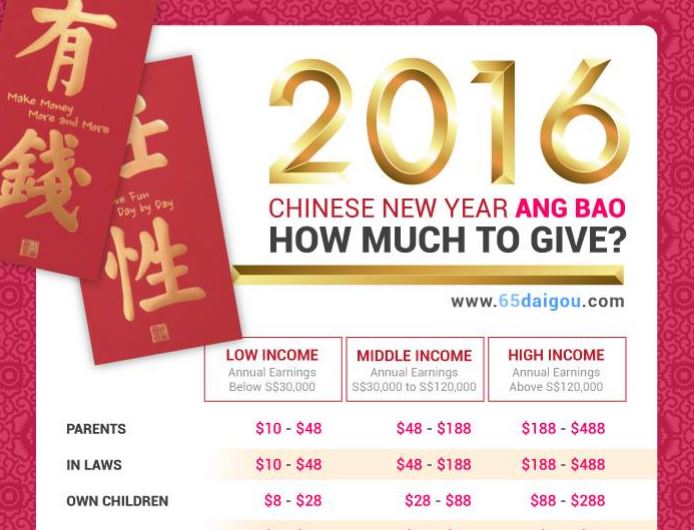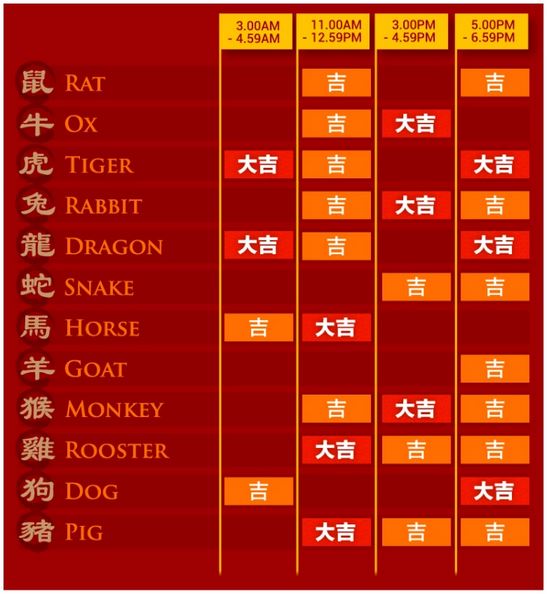Online posts on hongbao rates and auspicious times to deposit money this Chinese New Year go viral
Sign up now: Get ST's newsletters delivered to your inbox

65daigou's graphic on the "market rate" for hongbao during this year's Chinese New Year.
PHOTO: 65DAIGOU/FACEBOOK
SINGAPORE - With Chinese New Year just around the corner, just how much should one pack into that hongbao for friends and relatives?
A viral social media post, which details the "market rate" for this year in a graphic, might just have the answer.
The first day of Chinese New Year this year falls on Feb 8.
The post, uploaded onto the Facebook page of shipping concierge service 65daigou on Friday (Jan 23), has since racked up over 2,000 shares.
As a general guide, it breaks down the appropriate amount a person from the low-income (annual earnings below $30,000), middle-income ($30,000-$120,000) or the high-income (above $120,000) groups should give.
For instance, a hongbao for nephews and nieces can range between $8 and $28 for someone earning less than $30,000 a year.
But if you earn an annual income of more than $120,000, the amount should vary from $28 to $58.
Last year, an online survey of 500 people by the United Overseas Bank, and an informal poll by The Straits Times, determined that the going rate was $8 per packet - up from $4 to $6 the year before.
The practice of giving out electronic hongbao (e-hongbao) has also been on the rise in recent years.
Locally, DBS Bank's eAng-Bao feature in its DBS PayLah app allows its customers to send and receive cash through their smartphones. Chat apps such as WeChat, which enable users to gift money virtually, are also popular in China.
Fengshui experts whom The Straits Times spoke to, however, thought that e-hongbao dilute the spirt and cultural significance of Chinese New Year.
Mr Lim Eng Cheong, founder of Chang Consultancy and ProsperWithFengShui.com, said adopting the modern practice might be acceptable from a business perspective, but doing so during the festive period lacked the personal touch.
"Traditionally, giving out physical red packets was a way for elders to give their blessings. The colour red is also said to be auspicious and can ward off evil," said Mr Lim, who is in his late 30s.
Meanwhile, long queues are again expected to form at cash deposit machines across the island on Feb 4, which has traditionally been deemed an auspicious day on the Chinese calendar.
Known as Li Chun, it marks the beginning of spring and was an important day for farmers hoping for a bountiful harvest in ancient times.
It has now become a superstition for people to bank in money on that day while wearing red clothing, as some believe it can help grow their wealth.
65daigou has another handy guide for the practice: Depending on which zodiac sign you were born under, there are certain auspicious time periods to deposit cash.

They should also dress in their respective "lucky colours" and bank in an amount according to their "lucky numbers".
A person born in the Year of the Monkey, for example, should ideally do so between 3pm and 4.59pm. He or she should also wear something white, gold or blue, and deposit a sum containing the numbers one, four or nine.


